Apr 2, 2024 12:59 PM
Saxophonist, Sonic Explorer Casey Benjamin Dies at 45
Casey Benjamin, the alto saxophonist, vocalist, keyboardist and producer who stamped his distinctive sounds on the…
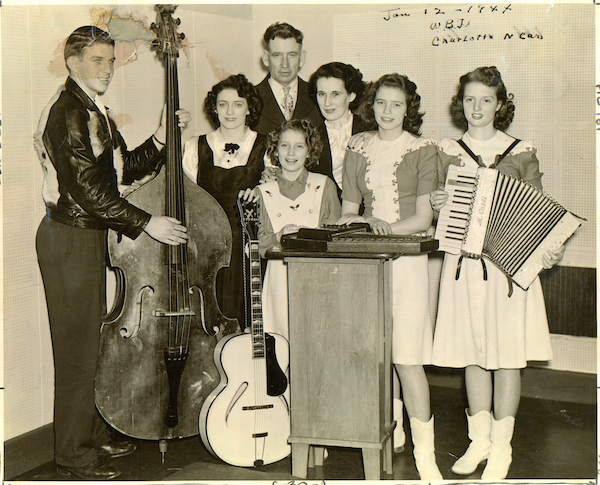
Maybelle (back row, left), A.P. and Sara Carter stand behind the next generation of the family’s musical legacy: Joe (left), Anita, June and Helen Carter.
(Photo: Courtesy Legacy Records)Hot on the heels of Ken Burns’ Country Music, The Carter Family throws a hootenanny—and a bit of a séance—on Across Generations.
Unreleased recordings of some early Carter Family members form the basis of the collection, though this isn’t really a dive into the archives as much as a family reunion.
Sara and Maybelle Carter, both famously part of the 1927 Bristol recording sessions now heralded as the Big Bang of country music, get a song apiece. But the real action here is the overdubbing of five generations of Carters, voices and instruments blending across decades. Nearly three dozen Carters—including Johnny Cash and a couple others who married into the family—make appearances, singing and stacking layers of acoustic guitars; many picked, of course, in variations of Maybelle Carter’s signature “scratch.”
It is very much the Carter Extended Family.
Carlene Carter—Maybelle’s granddaughter, June Carter’s daughter and Cash’ stepdaughter, with a long career of her own—recently said the idea behind Across Generations (Legacy) was discussed for years, and might have started with the discovery of a reel-to-reel audio letter that Sara Carter sent to relatives. On the tape, the original group’s lead vocalist sang between her discussion of the news of the day. Carlene recalled that most of her own singing and playing for the new album was done two summers ago during breaks from a tour she was doing with John Mellencamp and Emmylou Harris.
The singer and guitarist said she would head to sessions overseen by John Carter Cash—the son of June and Johnny, and “the ringmaster” of Across Generations—and join a crew of Carters both living and passed on, but still present on tape. A veteran of multiple Carter Family lineups, including tours with her mother and other family members who now are gone, Carlene Carter said the experience of making these recordings was especially affecting.
“It’s surreal. It’s joyful. It’s emotional,” she continued. And sometimes, like when she found herself playing guitar to beef up Sara Carter’s own six-string strums, it felt “bizarre.”
The song selection of Across Generations is mostly familiar material associated with the Original Carter Family, as the initial trio of Maybelle, Sara and A.P. Carter came to be known. A.P., who died in 1960, though, is not heard on the album. Johnny Cash, who sometimes sang A.P.’s baritone lines in performances of Carter material, does so here on several songs. But the most prominent low-pitched voice on the album is that of Dale Jett, A.P. and Sara’s grandson, a singer with “such a soulful voice,” Carlene Carter enthused.
Besides the many Carters, guitarist Norman Blake makes several appearances, and Dave Roe and the late Barbara Poole anchor the proceedings with upright bass.
The foundation for most of Across Generations—and the touchstone for its overall sound—seems to be the second generation lineup, sometimes billed as the Carter Sisters and Mother Maybelle, in which Maybelle’s daughters—Helen, June and Anita—performed with her between the 1940s and 1970s.
On the take of “Worried Man Blues” presented here, the vocal phrasing of the chorus isn’t that of the 1930 Original Carter Family recording. Instead, it has a rhythmic hop that Carlene Carter said Maybelle and her daughters introduced. Maybelle’s grandchildren learned the new arrangement by osmosis, just being at the side of the stage, she said.
The younger Carters—those of Carlene Carter’s and subsequent generations—mostly ended up on material that featured their parents or grandparents, whatever the most direct line was back to who sang the song initially, Carlene Carter said. So, when Sara Carter sings “Farther On,” it’s Jett, her grandson, who steps in for a verse, rather than, say, one of Maybelle’s descendants.
The result is a subtly changing mix of voices and another echo of the Carter Sisters era. Maybelle’s daughters had moved from the raw vocal styles, often influenced by shape-note singing, of the initial Carter recordings into a smoother and more complex set of harmonic structures, often trading lead vocals between verses—or even lines—of a song. That approach is most evident here on “Will The Circle Be Unbroken,” which features 28 singers—all third-generation Carters or younger, their relationships to the Original Carter Family described in painstaking liner notes—taking turns rising to the forefront in shifting combinations. The song ends on a baby’s gurgle.
The final song on Across Generations is at the opposite end of the arrangement spectrum. Maybelle Carter makes her sole appearance on the album with “Maybelle’s New Tune,” an unaccompanied, vaguely carnival-sounding ramble for electric autoharp. The two-and-a-half-minute recording documents Maybelle trying out a new-to-her amplified instrument, Carlene Carter said. It is a fine palette-cleanser after the stacked vocals and instruments of the preceding dozen songs.
Carlene Carter said that she was positive about how Maybelle would have reacted to the collection, overall: “My grandma’s smiling, big time,” she said. DB
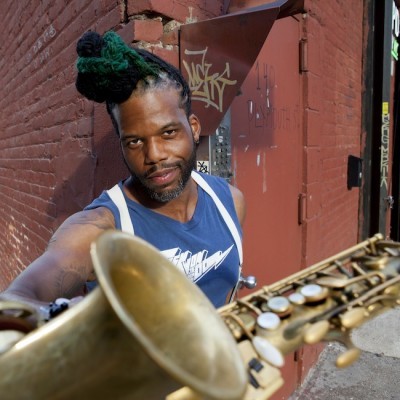
Benjamin possessed a fluid, round sound on the alto saxophone, and he was often most recognizable by the layers of electronic effects that he put onto the instrument.
Apr 2, 2024 12:59 PM
Casey Benjamin, the alto saxophonist, vocalist, keyboardist and producer who stamped his distinctive sounds on the…
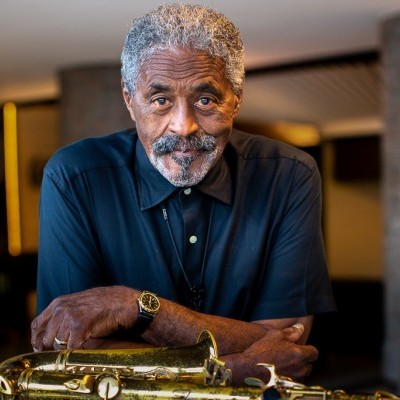
“He’s constructing intelligent musical sentences that connect seamlessly, which is the most important part of linear playing,” Charles McPherson said of alto saxophonist Sonny Red.
Feb 27, 2024 1:40 PM
“I might not have felt this way 30 to 40 years ago, but I’ve reached a point where I can hear value in what people…
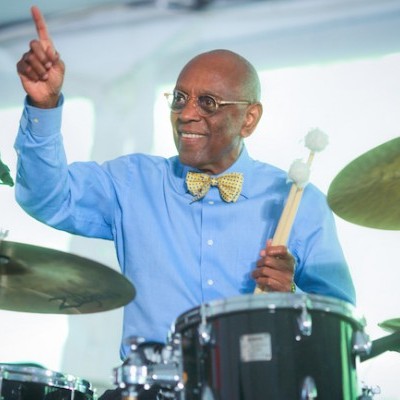
Albert “Tootie” Heath (1935–2024) followed in the tradition of drummer Kenny Clarke, his idol.
Apr 5, 2024 10:28 AM
Albert “Tootie” Heath, a drummer of impeccable taste and time who was the youngest of three jazz-legend brothers…
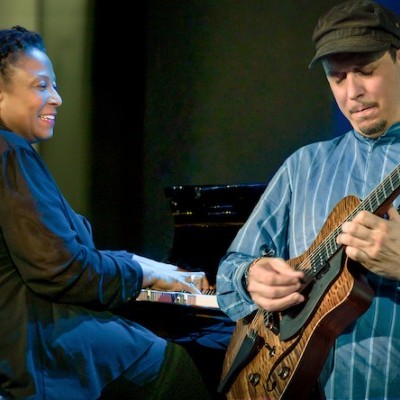
“Both of us are quite grounded in the craft, the tradition and the harmonic sense,” Rosenwinkel said of his experience playing with Allen. “Yet I felt we shared something mystical as well.”
Mar 12, 2024 11:42 AM
“There are a few musicians you hear where, as somebody once said, the molecules in the room change. Geri was one of…
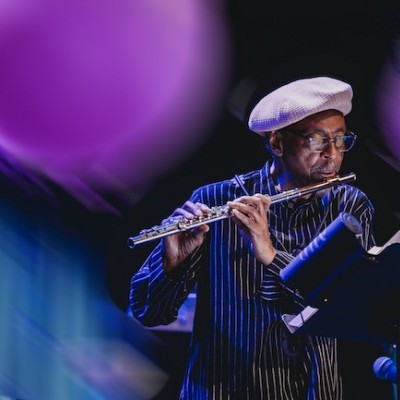
Henry Threadgill performs with Zooid at Big Ears in Knoxville, Tennessee.
Apr 9, 2024 11:30 AM
Big Ears, the annual four-day music celebration that first took place in 2009 in Knoxville, Tennessee, could well be…